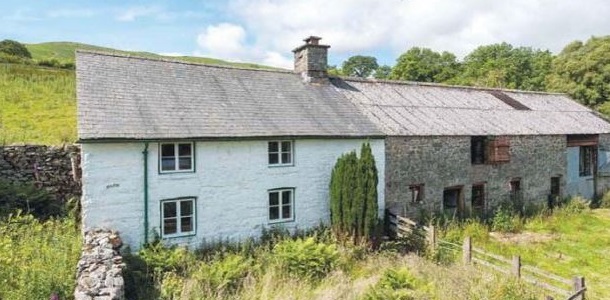Yes, it is possible to be approved for a bridging loan, even with a bad credit history, defaults or CCJs on your credit file. Bridging is a form of secured lending, so provided that you have a valuable property or opportunity in the pipeline, there are a number of lenders who are willing to take a view and you can still get the funding you need.
Whilst some bridging lenders will conduct a credit check, each and every lender is different and has their own eligibility criteria. So if you have a bad credit score, one of the best things you can do is speak to a bridging loan broker who can look at your history and requirements and find the best lender and option for you.
In some cases, depending on your credit history, you may find that the terms are adjusted for your credit history – so maybe the amount you can borrow is slightly less, the loan duration is a bit longer and the interest rate charge is just a little higher to account for this.
To discuss your bridging loan requirements, simply check your eligibility using the button below.
How Can I Get a Bridging Loan with a Bad Credit History?
Your property has equity in it – If you are using your home as collateral, if you have built up a reasonable amount of equity in it and have other assets, this may be used to offset the fact that you have poor credit.
The property you want to buy is valuable – If you are looking to purchase a property which proposes a good investment, this will certainly help your case. This could be a property in a fast-growing area or huge demand for rental properties or high-end home or has a lot of room for improvement. This could suggest a good investment for a bridging lender.
You are experienced with well-thought out plans – If you have successfully completed a number of property developments and have a good track record, this will give the lender confidence that you will be able to use the funding effectively and not fall into arrears.
You have a good exit strategy – Good applicants have clearly planned out their exit strategy whether it is refinancing at the end of the loan term, renting out the property to tenants or selling it on the open market. You should have a very carefully planned exit strategy and sharing this with the lender will be important to get approved.

What Checks Will Bridging Lenders Carry Out?
Some bridging loan lenders will carry out credit checks during the application process, but a lot of their decision will be based on the value and quality of the property you are looking to purchase and other factors such as your personal experience, plans and exit strategy.
You may also need to show some documents including proof of identity, income and address.
A valuation of the property will always be carried out and this is a key part of the decision process. The lender will see if the property’s value is consistent with your plans, the area you are buying in, the sale prices of other properties in the area and how long it has taken other similar properties to sell nearby. A valuation will also highlight any potential snags or drawbacks that could stop the deal from going ahead.
Your exit strategy will be very important including whether you are looking to sell the property, rent it out or refinance. The more information you have here, the better, including any costings, plans and timelines.
What Can I Do To Maximise My Chances of Approval?
If you think that you might be rejected because of your bad credit history, you can look at some basic ways to improve your score. It can take weeks or months for a credit score to improve, but there is no reason why you cannot start the process. You can start by getting a copy of your credit report for free from a credit reference agency or you can request one from the UK government for just £2. This will help you identify any problem areas with your credit score and where you can make improvements. See also this guide for secured loans with bad credit history.
To improve your credit score, you may look at consolidating some debts and paying these off. You could look at balance transfer cards which are 0% interest or using credit builder cards to build up your credit again. Other good practices include joining the electoral roll, removing yourself from any joint accounts that you share with someone with bad credit and closing down any store cards or credit cards that you do not use.
Finally, you should also speak to a broker, like Lending Expert, who can check your eligibility and loan requirements against 50 bridging lenders, many of whom are willing to take a view on bad credit histories. Using a broker can save you a lot of time and match your lender with the one who is most likely to approve you – and the service is completely free until your loan is funded. For more information, you can check your eligibility by clicking the button below.



